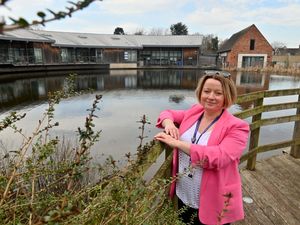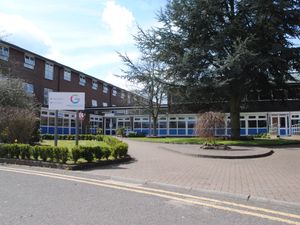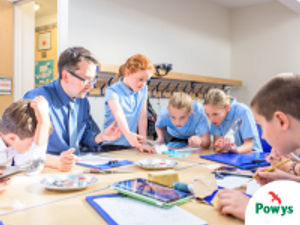Bishop's Castle pupils go green after Welsh retreat
Teenagers have been inspired to make their school more environmentally sustainable following a week in the Welsh wilderness.
Pupils at Bishop's Castle Community College swapped mobiles for mountains and rubbish for recycling to learn about how they can help their school be greener – and save money in the process.
The year nine students developed their ideas during a week at an Outward Bound outdoor education centre in Snowdonia National Park, supported by The Midcounties Co-operative's environmental education initiative, Green Pioneers.
The trip saw them learn about natural resources, survive on rations, and use only a log-burning stove for heating.
Back at school they will be switching off the school’s 400 computers and laptops, having identified the energy and monetary wastage from keeping them on standby.
They’ve also designed and produced promotional badges and posters to communicate the eco-friendly message to their classmates and teachers.
In addition to saving electricity, the students have helped their school partner with a local recycling company that will pay for their used electronics, batteries and printer toner cartridges.
Meanwhile, away from the classroom, they’re also bringing the school’s garden back to life, and exploring ways to grow and use their own fruit, vegetables and herbs.
Alan Doust, head teacher at the Community College said: “Since their trip to Wales, the students have been full of enthusiasm for reducing their environmental impact and working towards a more sustainable future for their school.
“It’s been wonderful to watch their sense of achievement build with each new success – whether it’s in the school garden, or in the classrooms. I’m looking forward to seeing what great ideas they up with next.”
The Green Pioneers programme is a partnership between The Midcounties Co-operative and the Outward Bound Trust outdoor education charity.
Rebekah Brain, colleague engagement advisor, said: “Not only does Green Pioneers teach the students about environmental sustainability, they’re picking up valuable skills for later life and employment.
"They’ve developed projects, solved problems, and worked with their peers to achieve some fantastic outcomes.
“We’re always finding ways to help develop young people in the communities in which we trade, and this initiative proves successful time and time again,” she said.




